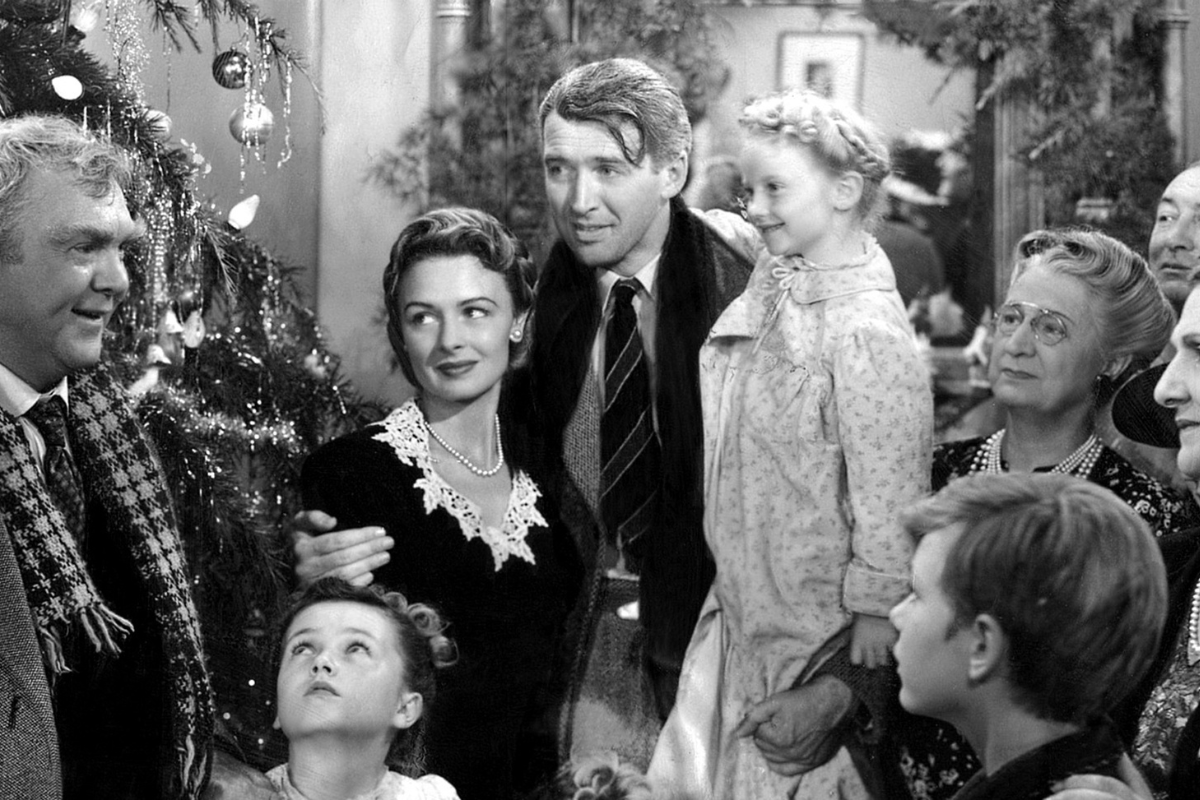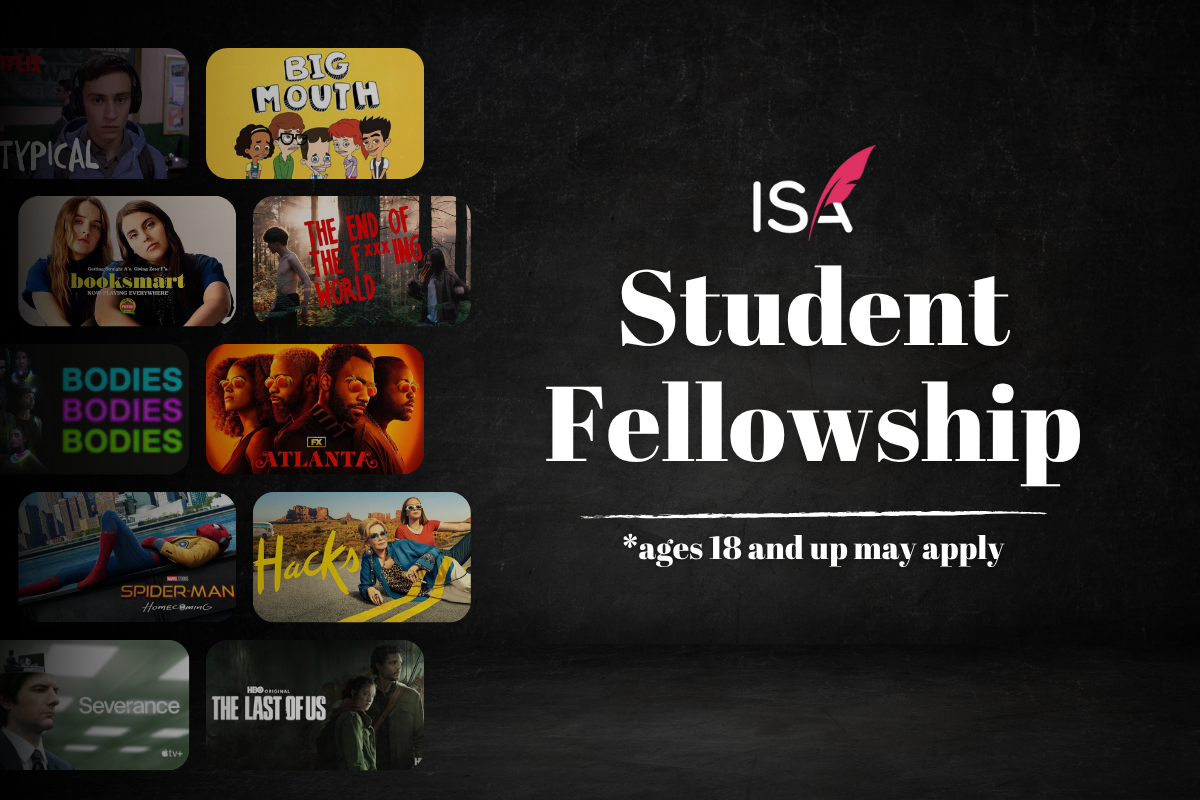BREAKING & ENTERING: Writing The Killer Query Letter
Barri Evins essential pointers on the steps to writing a killer query letter that succeeds in getting a response, not the query letter that leaves you dead in the water.
Barri Evins essential pointers on the steps to writing a killer query letter that succeeds in getting a response, not the query letter that leaves you dead in the water.
A producer who’s sold to all the majors, Barri Evins created Big Ideas to give aspiring screenwriters what it takes to break into the business by sharing methods she uses with professional writers. Sign up for Barri’s newsletter and follow her on Twitter @BigBigIdeas.
I’ve been doing a lot of query letter consultations lately on a wide range of projects. I’m finding that writers really struggle with this unique writing form. It's challenging, and it shows. Over the course of my career, I've read queries that made me want to kill myself. So naturally, it occurred to me that my readers might benefit from a column on queries.
I struggled with this at first, as my advice felt too simple. But then I had an “Ah-Ha” moment and I knew what I needed to say.
There is only one true purpose to the query letter: To communicate your story in a way that makes someone want to read it.
That’s it. A killer query. End of column.
Okay, I might add: To communicate it clearly and effectively in a way that makes someone want to read it.
That's what it takes to write a killer query letter.
Query Letter Recipe:How to Write a Killer Query
The Number One Goal of the query letter is to make someone want to read your story.
But far too many queries fail to be "killer," but instead make us want to kill ourselves.
Here’s my step-by-step recipe for getting it right:
1) Your query letter IS a writing sample.
Writers may not realize this, but to those of us who read queries, it’s obvious.
Never forget this simple fact. No typos. No misspelled names. No run-on sentences. No grammatical errors.
It must be well written.
2) If you have chops as a writer, tell us right up front.
Your job here is to convince us that you can write. The single best way to do that is to let us know that someone else thinks you can write.
Options, sales or assignments. Representation. Lacking that, contest wins or high placement. Writing accomplishments in other fields, such as being paid to write articles or columns. Failing that, some serious screenwriting education. I’m talking well-known writing programs, high-end seminars, etc.
A poor substitute is going on and on about complimentary coverage.
I've seen it a million times, and it just kills me.
Sorry, not impressive to read the vague opinions of possibly unskilled people that we don’t know.
Know what would be killer? A query that explained that the writer had gone to the lengths to get paid coverage, taken the best notes to heart, and implemented them before even approaching me. That would be the purpose of paid coverage, not padding your query letter with an anonymous opinion. It demonstrates that you see room for improvement in your work and that you know how to take notes. In our eyes, it makes you look like you’d be good to work with.
3) The tone, the tone, the tone.
We absolutely, positively need to know this BEFORE you even give us the logline. The title, genre, and logline should all be working together to support the tone.
Establishing the tone at the outset is essential to our ability to interpret what follows. You know the old saying, “There’s a fine line between comedy and tragedy.” It’s an old saying for a reason.
If I don’t know the tone, I can’t truly understand the story.
Notice I didn’t say genre. Why? Genre may not be specific enough. Saying “comedy” or “drama” isn’t adequate as each encompasses a huge range of subgenres. Every subgenre has a specific tone. Is it broad, smart, tragic, character-driven? We need to know before you can begin to convey the story.
To make sure we understand what the movie feels like you might also include a reference film – a successful prototype that shares something significant and immediately recognizable with your film. My friend, the talented and wry Philip Eisner, sold the film Event Horizon by pitching “The Shining in space.” Everyone got it right away. That’s the way to reference another film – if the concept, plot, tone, or theme are very similar to yours, then a prototype can add clarity. No need to stoop to “It’s X FILM meets Y FILM.” Just an example that clarifies the tone of your story if absolutely necessary.
Another way to support your tone is with the title. Titles should always be, at a minimum, in sync with the tone. A great title that underscores the tone is an added bonus.
4) A logline that conveys the hero, his flaw, his conflict, the stakes and promises there’s more.
That order – hero, his flaw, conflict, stakes is pretty much guaranteed to succeed. And “promises more” means that the concept feels spring loaded for more conflict, twists, escalation – the things we love in good stories. Find more pointers on writing effective loglines here.
A few good examples from movies you’ll instantly recognize:
Mainstream horror. When a Great White shark terrorizes a quiet New England beach community, the town’s police chief must overcome his fear of the water to join forces with a grizzled shark hunter and a daredevil oceanographer to hunt it down.
Action. A down-to-earth New York City cop comes to Los Angeles in an attempt at a Christmas reconciliation with his estranged wife, a powerful business executive, but when terrorists seize her high-rise office building, he is all that stands between them and their hostages – including his wife.
Comedy/ wish Fulfillment Fantasy. A twelve-year-old boy, wishing to be big, wakes up the next morning in the body of a thirty-year-old man, and must attempt to live the life of a successful urban professional while trying to reverse the spell.
There are no logline length rules. A single sentence is highly preferred. If it truly takes two, if you are utterly convinced that it simply must be two sentences, then it takes two. But for me, that would raise a red flag that there is either an issue with your logline writing, or possibly a deeper, underlying problem with your story being overly complex or unfocused. Two sentence loglines will probably kill your chances of getting read. Consider yourself warned.
Disturbing online chatter that a logline must be 25 words or less is simply not a rule. Watch a video debunking the myth here. A naïve devotee of that rumor sent me a logline that left me with more than 50 words of questions asking what his story was about.
Get my Free Logline Appraisal here. Choose my comprehensive one-on-one Logline Consultation or Query Consultation here.
4) A synopsis should be simple and clear, not cute and clever.
If you feel you must include a synopsis – and I believe that if the logline is firing on all cylinders you shouldn’t need one – keep it short. Do not – I repeat: Do Not – attach a one-page synopsis. I know you want to. I understand that you love your story and want to tell us all about it, because to know it is to love it.
However, we have a lot of work on our plates and you’ve just given us the option of quickly skimming a few paragraphs and PASSING.
Easy peasey, lemon squeezy. For us.
For you: Game Over. Instead of killing, your story has been killed.
Of course we will take the easy way out and move on. That’s why your goal in a query should be to convey your idea and have it be so solid and so intriguing that we want to read your material.
Avoid the synopsis if at all possible. There may be situations such as pitchfests where one-pagers are encouraged or even specifically requested. If there’s absolutely no way out, well it’s better to comply than kill your chances by not taking the shot at all.
Don’t mistake pitchfest interest and a request for a one-pager for serious interest. It’s a little interest. For us, the synopsis remains a serious, timesaving short cut. Your goal must be to get us to read the material.
If your work is Execution Dependent rather than concept-driven, you really, really need us to read it. Read more about conquering the challenges of Execution Dependent material here.
This is your one and only chance to convince someone to read your material. Put it out there in your synopsis.
If you’ve got an amazing ending, you have to give it up! Hiding the cool stuff doesn’t work to pique our interest. Honest.
If you have a cool ending or big twist, tell us! Would you have asked to read The Sixth Sense or The Usual Suspects based on a query letter that ended: “Cue mystery music: duh-duh-duh-duuuh” instead of “In the end we discover…”?
This is what you have to offer, so put your goods on display. Out there for all of us to see. No point in being coy – it's just going to get you killed.
Query Letter San Synopsis
This may seem like a radical suggestion, but there’s plenty to be said for going commando in your query. Don’t give us a lengthy synopsis. Not two paragraphs. Not even one.
You may feel naked, but it’s well worth it.
Here’s your opportunity to truly show off what your story has to offer on a deeper level. Take a short paragraph to tell us about the heart of your story – the issues it delves into and the theme. This is why your story matters. Why it should be heard.
Conveying what makes your story special – the theme that gives it added resonance and makes it stand out – goes straight to audience appeal. This matters to decision makers. We need to know that there is an audience. It is far more effective than making impossible box office predictions or citing statistics from other works.
Take the leap with this powerful tool, because it has the power to pay off in the only way that counts – getting someone to want to read your material.
If I haven’t yet convinced you that showing us the heart of the story is a killer technique, watch this video and let me persuade you.
Query Letter Test Drive
Test your query out on people who don’t know your story. Like us, they have never read your script or even heard a pitch. Have them read the letter and then tell the story back to you. Did they tell your story? Or did you still have to explain it to them?
If you're explaining, you're in trouble.
Ask them who the hero is. Are they rootable?
Ask them: What’s the biggest conflict the hero faces?
And here’s the biggie: Ask them if they can tell what the story feels like – its genre and tone.
If so: Is it a movie they would want to see or not? A book they would buy?
It’s okay if it’s not a movie or book they are personally interested in; no one wants to watch every single film or read every novel out there, but they should be able to decide based on what you’ve written. After all, if your movie should make it into theatres or your book onto the shelves, virtual or otherwise, folks will be deciding whether or not they want to see it based on the single image of a one-sheet, a 15 second commercial, a cover design or a brief jacket blurb.
If your “blind” readers can’t answer these questions, the target audience for your query letter probably can’t either. That’s a killer flaw. A “FAIL.”
Get the story in your head onto the page, so buyers can decide if it’s right for them or not. By conveying what the story feels like, you give us the information we need to decide if there’s an audience and if the idea is of interest to us, our bosses, and our buyers.
But Isn't The Query Letter Futile?
I’m not going to tell you that the query letter is the Golden Ticket. You may, indeed, be tilting at windmills.
However, it’s simply not true that nothing has ever been sold because of a query letter. The truth is the query letter can be a means to an end. But the idyllic ending that you’re dreaming of may not be a big sale followed by fame and fortune, but an open door.
I know that queries can lead to getting your material read and, if not sold, then creating a fan in the business who can get your material to others, possibly helping you find an agent or manager. When I was a young exec, I did that all the time. And I built relationships with writers that have endured.
The writer of Grosse Pointe Blank, the late Tom Jankiewicz, is possibly the sweetest (and tallest) person I have ever met. He was working as a substitute teacher, reading the trades, and using that info to target his queries. He send out possibly hundreds, found that Keifer Southerland had a deal, and sent a query letter to his company. They responded, read the material, and Keifer got on board. They helped Tom build industry connections as well. Now, the project didn't end with Keifer. As you know, it wound up with John Cusack, but Tom credited his persistent query letters for getting it off the ground.
I hear you naysayers.
That movie got made in the 1990s!
The market is tougher now!
It was a fluke!
Yes, right. But stay open to the possibility – even if it is admittedly a slim possibility – that the query letter can lead you somewhere.
Too many writers send out queries in a scattershot manner, blanketing the town. If you want to hit something, you have to take aim. That's what Tom did.
It's time to rethink your query letter goals.
More next month on ways to make your query letter truly killer, score a hit, and even turn a “pass” into a positive.
For pointers on how to write a query letter that is outstanding, rather than a query letter that stands out for all the wrong reasons – with some examples of What Not To Do that will make you laugh until you cry – check out this blog. And for professional help with your query, click here.
Still have query letter questions? Let me know in the comments.
Get more tips from Barri Evins with her on-demand webinar
Loglines, Queries & Synopses:
How to Take Your Script from Being Ignored to Getting Noticed!
Barri Evins draws on decades of industry experience to give writers practical advice on elevating their craft and advancing their career. Her next SCREENWRITING ELEVATED online seminar with 7 monthly sessions plus mentorship will be announced in 2025. Breaking & Entering is peppered with real life anecdotes – good, bad, and hilarious – as stories are the greatest teacher. A working film producer and longtime industry executive, culminating in President of Production for Debra Hill, Barri developed, packaged, and sold projects to Warners, Universal, Disney, Nickelodeon, New Line, and HBO. Known for her keen eye for up and coming talent and spotting engaging ideas that became successful stories, Barri also worked extensively with A-List writers and directors. As a writer, she co-wrote a treatment sold in a preemptive six-figure deal to Warners, and a Fox Family project. As a teacher and consultant, Barri enables writers to achieve their vision for their stories and succeed in getting industry attention through innovative seminars, interactive consultations, and empowering mentorship. Follow her on Facebook or join her newsletter. Explore her Big Ideas website, to find out about consultations and seminars. And check out her blog, which includes the wit and wisdom of her pal, Dr. Paige Turner. See Barri in action on YouTube. Instagram: @bigbigideas X: @bigbigideas







